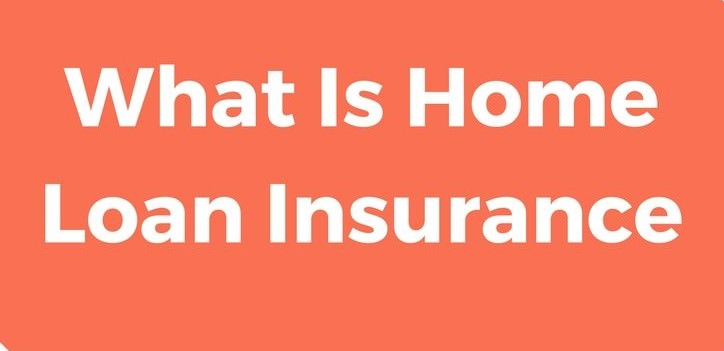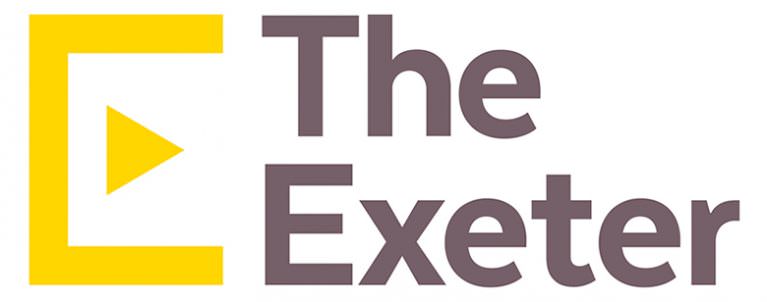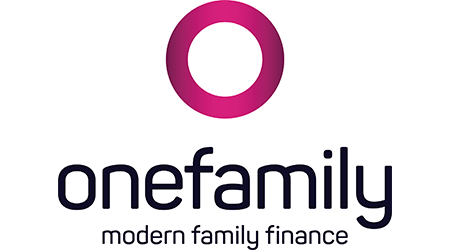 ‘Loan on Equity of Home’ Broker Deals
‘Loan on Equity of Home’ Broker Deals
‘Equity Loan Home’ > Up to £1 million+ > Up to 35 years*

Article on: Loan on Equity of Home * Loans subject to status


What is a ‘Equity Loan on Home’?
Equity Loans on home are now often more commonly referred to as ‘second mortgages’, ‘secured loans’ or ‘homeowner loans’ in the UK.
So, what is a homeowners loan or equity loans on home? They are a secured loan on your property or a ‘second charge secured loan’ because they have 2nd priority charge behind a main (or first charge) primary mortgage.
This now means you would have 2 mortgages on your property. As such, we will examine in this review ‘how does a home equity loan work’? The pros & cons associated with taking one out. Then, some other alternative options to maybe consider.
An ‘equity in home loan’ are often used as a way to raise further money against the equity within your domestic property.
This maybe perhaps when it is not possible (or preferable) to increase the main mortgage via a remortgage or further advance.
With a ‘home equity loan’ broker deal, you may be able to borrow larger sum of money with a longer repayment term, than perhaps other types of unsecured finance.
The nature of a loan on equity of home is that it is legally secured to assets that you may own ie; usually your residential property or other substantial assets you may own.
Many equity loan on property lenders terms in the 2020’s may also offer lower interest rates than unsecured loans & for a ‘home secured loan’ larger amounts.
The reason behind this is because those ‘home equity loans uk’ providers potentially have a lower financial risk exposure ie; they always have recourse to seize back your home asset – should you be unable to meet all the regular loan repayments.
- Equity ‘Homeowner loans’ deals can be used for most purposes…
- Consolidation, Home Improvements, School Fees, Holidays or Business use
- 2nd Home for Family or Holiday
- Available generally on longer term basis than unsecured loans e.g. 25 years
- Or on a shorter term ‘bridge’ basis of up to 12 months
Note: Making regular repayments upon time to any equity secured finance via your ‘home ownership loans’ lender is crucial to maintaining your credit status in the longer term

Can I get a ‘Loan on Equity of Home’?
Your ability to use your equity in home loan will depend (apart from your actual home equity values), on you being able to show a good track record at paying off your main mortgage ie; are you a good finance risk?
This means you being up to date with your regular monthly mortgage & bill repayments. Also, these bills should be paid on time. If you have some bad credit, then we may still be able to help.
For home loans, lenders must also comply with FCA responsible lending & financing rules (that also cover your main first charge home mortgage).
This means therefore for home loan providers, they should carry out the same affordability checks or various loan to income limits, which are all regularly reviewed by the FCA regulator.
A few years ago this meant loans for homeowner lending must also stress test your ability to meet future payments. However despite much debate, these rules for a secured loan against home were maybe set to change in 2022.
- Using your Home for loans means you can have more than one loan on a property uk at anytime
- Calculator for home equity loans means for some Lenders they will take your existing mortgage repayments plus other property related costs into account, for their affordability calculations
- Your ability to get a second home mortgage will depend on (amongst other things) your likelihood to be able to meet both 1st & 2nd charge payments

How much ‘Loan from Equity of Home’ can I get?
How much Loan from Equity of Home can I get …or in other words ‘how much equity can I borrow on my home’? This will initially also depend on the amount of equity that you have built up in your property.
This equity is the percentage % of your property owned outright by you = the value of the home less any initial mortgage finances you already owe on it.
For example, if your property is worth £375,000 and your main mortgage is £125,000 then you have £250,000 as an equity calculator for home equity loans.
Any further secured finance will be measured by this £250,000 equity example, you have in your property as security against equity for home loan.
In the 2020’s, with fluctuating UK property prices this Home Loan calculator with equity is made harder as some lenders become more risk averse.
This equity on property amount will also vary between those 2nd mortgage lenders. Unsure then, Please contact us about a ‘Equity Home Loan’ >
To proceed with best ‘home owner loans’ deal our whole of market uk mortgage brokers will need to know…
- Purpose of your Equity Home Loan
- Amounts Borrowed & Term
- Personal Financial details
- Credit History files
- Income & Outgoings
- Employment status | Employed or Self Employed
- Property Loan to Equity (LTV)

‘Home Loan Calculator with Equity‘ Property Valuation
The best way to establish how much you can ‘release equity from house’ you own, is by getting an indication up to date valuation of your property.
There are many free online valuations like; Onthemarket, Zoopla, or Yopa. But these websites can often vastly vary in their approximate valuations by £100,000+ from their lowest to highest estimates.
Alternatively, your local estate agents or valuer may kindly advise for free as a rough guide, how much your property is currently worth.
Also what these will not do, is raise any issues if you may have property problems eg; rising damp or subsidence. Only an onsite inspection may establish if this could be a problem.
The amount ‘loans homeowner’ are allowed to borrow may vary, but ‘home ownership loans’ usually from £3,000 upwards often to over £1 million+.
Often larger sums are available for bridging finance. Note: All ‘equity loan home’ deals are subject to the lenders individual criteria & valuation. These could be done via a full property valuation, online assessment or a drive by valuation.
Often the higher equity you have in your property, then the better your chances are of being accepted & with lower interest rates.
However, around 75% of the equity in your property in the 2020’s is a fair average for lending ie; as mentioned with some uk property values falling.
So in other words, you can usually borrow a little less with rates for home loans, than via your main home mortgage.
The reason being risk wise, your lender here now has a secondary priority risk in line to receive funds and to make any credit claims. Should you unfortunately default, they have the added complications in the event of a repossession.
As whole market brokers we deal with many leading lenders offering competitive ‘loans on home equity’.
Some lenders may also allow a 3rd legal charge, should you ever require even more additional funding on top, although this is quite rare nowadays.


‘Home for Loans’ vs Remortgage
Due to rising UK interest rates in the 2020’s and the cost of living crisis, more people are looking online into whether to consider a Home Loan on a Property vs a Remortgage.
It is best to fully understand some of the key differences re your options & before you make such a large financial decision.
A remortgage is when you switch and move your current mortgage across to another lender or other product. This usually does not involve you selling up & having to moving home.
However, it will mean you having to re-negotiate or replace your main mortgage on your property with another.
Remortgaging is often not free & for some people it can come at a cost. When you remortgage, you could have to pay early exit redemption fees & then possibly a new remortgage setup admin charges.
Thereafter the new remortgage provider will also likely charge their own legal & survey costs, so it is important to calculate whether these savings can make it worthwhile switching.
Note: Some mainstream home mortgage providers, may only remortgage or lend to their existing customers. These deals also may not necessarily offer the cheapest interest rates against the market but perhaps you don’t want to shop around?
Should you not wish to remortgage, as you believe it is not in your interests, then you could be better off using a specialist ‘loans for homeowners’ lender, particularly if your situation is slightly more complex eg; adverse credit since taken out your original mortgage.

Further Loan Advance vs ‘Loans for Homeowners’
A further mortgage advance is similar to using your property ‘for home loan’ ie; you will take additional borrowing secured against your property and that is in additional to your main mortgage.
You maybe able to combine a further advance to borrow additional money and then product transfer switch across to a new rate on existing borrowing in one single application, if it makes financial sense.
Some lenders will not permit a Further Loan advance within 6 months of completion of the original home mortgage. Usually if your existing mortgage is in arrears, then your lenders may also not accept a further advance application, so releasing equity from a house.
Further advances are often not accepted on shared equity schemes. If the further advance is above say 80% LTV, often a property revaluation will be required with associated revaluation fees.
Unlike for home loans, you will be probably dealing with your existing lender. However, let’s now examine some of the reasons why people would look into either options.
Note; not all main stream mortgage providers are also equity home loan lenders uk – as it is a niche marketplace. You may not have heard of some of these providers, as we have access to the whole of market.
So our finance brokers can check how much equity can be released from a property. They are familiar with the market can save you both the time, stress & cost of wasted paperwork.

Often people remortgage or take a further advance releasing equity from a house in order to…
- Borrow more funds
- Current deal is ending
- Want a better interest rate
- Need a more flexible mortgage
- Concerned about interest rates increasing
- Switch from interest-only across to repayment
- You now wish to overpay & your lender won’t let you
Top 10 Reasons for ‘Homeowner Loans’…
So given the above options, let us now look at various Top 10 reasons why a ‘loan for homeowner’ could be another option (rather than just remortgaging).
- Main mortgage is on interest only & you do not want to remortgage over to repayment
- Unable to get an unsecured personal loan due to credit status, amounts required or term
- Want to borrow beyond your normal retirement age & they won’t allow that
- Need a loan term for over 10 years+ period to make regular payments more affordable
- Locked into a long term main mortgage at a low fixed rate & this makes no sense to cancel
- High early exit penalty fees applied by your main mortgage lender
- Main mortgage lender won’t allow you to borrow anymore based on income multiples or business accounts
- Credit status has changed for the worse since you originally took main mortgage
- Need to consolidate existing unsecured credit that a remortgage lender may not allow
- Trapped with mortgage lender & now unable to switch as you don’t pass current strict affordability tests
Note: These above examples will all depend on your circumstances & so are not to be considered personal advice. Note: ‘interest rates for home loans’ maybe higher than on your main mortgage.
Remember, if you are looking to raise finance, always consider firstly either re-approaching your existing lender or ask them about an unsecured personal loan as alternative finance options.
If this doesn’t work for you, then our home equity loan brokers would be happy to help instead.

‘Loan from Equity of Home’ Brokers
Our finance mortgage brokers will work to try and secure you the best home ownership loans & terms. They will negotiate with those providers on your behalf and get you access to some broker exclusive deals.
Don’t forget this means you would be now in effect taking out 2 mortgages. Technically therefore, you are twice financially liable for your repayments against the security of your own property bricks & mortar.
So your 1st charge would usually be your mortgage ie; first priority payments charged ahead of the 2nd charge payment.
You will also need to get written legal permission from your existing mortgage lender ie; give their ‘legal consent to 2nd charge’ before you can apply.
This consent should ideally be done as early as possible in the process, as some providers may be more willing than others to give their consent.
Some lenders administration can be a little slow to access the necessary documentation. Finally, your new finance provider may also wish to obtain a valuation on your property.
Can you Remortgage your ‘Loans Homeowner’ deal?
Yes, it is possible to remortgage your ‘loans homeowner’ deal to another. For example, if you have found a better finance rate or deal.
However, you may find it harder than say remortgaging your main mortgage, due to the lenders additional risk.
But provided you have made regular equity loan home payments, your credit profile is still okay, and your income & outgoings show your finances are well managed, then it is worth reviewing.
Conversely, if your main mortgage terms are now worth remortgaging eg; a good fixed rate deal has ended, you could now review & combine both the main mortgage & home equity loan.
What happens if you want to move house?
If you want to sell your home, you will need to pay off both your home equity loan, as well as your main mortgage.
Sometimes, your ‘for home loans’ lender may allow you transfer your property loan across to a new house.

‘Bad Credit for Home Loans’
You might think you may be unable to apply for ‘bad credit for home loans’ because you may have possibly been rejected for some credit in the past?
However, different lenders offering ‘bad credit loans for homeowners’ often have different criteria for lending out money.
Some providers offering ‘homeowner loans for bad credit’ may see you more confidently than others, as to what is considered bad credit.
However, there are certain common factors on your credit report that would make lenders think you are a higher credit risk eg; missed loan or credit card payments or applying for credit frequently.
It is possible to get ‘bad credit homeowner loans’, although you may probably have to pay higher interest rates. Also, the provider may offer to lend you less and the loan to value rates may need to be higher.
We would suggest before you apply for a bad credit equity in home loan, you perhaps check your credit score via companies such as Equifax or Experian.
Pros & Cons of a ‘Loan from Equity of Home’
* Pros
- Use the equity in your home to access larger amounts of money
- Borrow money on a secured basis if unable to do so unsecured
- Lower interest rates on larger sums borrowed than personal loan
* Cons
- Your home is at risk if you cannot make the repayments
- Take on more debt than you can afford payments on
- You borrow more than you need & reduce home loan to equity

Note: Money Saving Expert Martin Lewis on Secured Loans or ‘home equity loans’ is not really a big fan…but does appreciate that they do have their place for some people.
Martin Lewis says they should be considered only as a last resort …..perhaps only to consolidate debts re say bad credit & only if it means overall you are hopefully paying less for all your outgoings.
As equity on home loan brokers we would say that remember, you are perhaps not clearing all your credit cards & loans balances, just re-organizing them to hopefully ensure that they are then fully cleared in the future.
‘Home Owners Loans’ Life Insurance
Whilst either looking to raise money or consolidating, it is easy to forget (especially if this a joint ‘equity loan homes’ deal) that you should also consider insuring any extra ‘home ownership loans’.
You probably may have some protection in place on your main mortgage? However, as you are now borrowing more this also means reconsidering more insurance for your Home Loans.
For example, it could be the new ‘home equity loans’ term is now longer or now set up in joint names, so maybe your existing mortgage protection insurance cover policy is now inappropriate?

Do you need Insurance for ‘Equity on Home Loan’?
This is a valid question if 2 people now take out any new joint ‘home equity loans’ (whether married or in a couple) and those 2 people are also named on their joint home equity loans uk deed?
This means if one of you sadly died, or is critically ill, then the other person could be left with the full loan repayment after releasing equity from a house. If this happens to the main family breadwinner, the situation could be even worse.
The surviving partner can now be legally pursued by the Lender for future ongoing ‘loans homeowner’ repayments. At your worst time, the situation could get even worse ![]()
Considering taking out ‘equity for a home loan’ or remortgaging & now wondering…Do you need Life Insurance for your Loan to Equity protection?
Then, please consider these reasons for protecting your uk loan to home deal; Your 3 x Maybe….
 Your 3 x ‘Maybe’
Your 3 x ‘Maybe’
- YOUR HOME ‘Maybe’ your biggest asset
- YOUR HOME LOAN ‘Maybe’ your biggest debt
- YOUR HOME ‘Maybe’ repossessed if you do not keep up repayments on your ‘home owner loans’

Life Insurance just ‘for Home Loans’?
When looking at life insurance just ‘for home loans’, also look at the wider picture of what may happen if the worst sadly happens. People often forget about this bigger picture & just concentrate solely on covering just their equity for home loan with insurance.
Although that particular life policy has potentially protected your ‘equity in house’ you own & maybe now paid out, you may still need to have ongoing income to pay your regular bills. If not, and say the main breadwinner had died, would you now have to sell your home after releasing equity from a house?
- Your ‘home ownership loans’ payments are only part of your regular monthly outgoings
- Other ongoing expenses include Food, Gas, Electric, Travel, Credit cards, Mobile, Utilities etc;
- Regular monthly bills will not stop coming in if sadly someone dies
- Likewise you would also still have to cover funeral costs and maybe repay other outgoings
- It makes sense to have both Life Insurance for home loans & Family Life Insurance if you have dependants (young or old)
‘Home Loans’ Life Insurance = Decreasing Term Insurance?
- This Protection is designed to help insure a ‘repayment style’ loan on equity of home or other secured debts
- The equity loan home amount you owe will then reduce over the term if you keep up your repayments
- A decreasing term insurance policy will also therefore reduce over its term or time period
- The plan payments however stay the same throughout the average cost of life insurance policy
- Decreasing Term Insurance loan rate flexible calculator for home loan repayment
- Cover is ‘underwritten’ so Insurers ask you medical lifestyle questions before offering terms

Why is Critical Illness Cover* more expensive?
- People often like the option of including critical illness insurance with their home secured loans protection insurance
- Critical Illness* covers a large number of risks [could be 50/100+ benefits] to help repay debts on home for loans
- Statistically you are far more likely to be making a claim on critical illness cover, if included than just lifecover
- For example, 50% of people will be diagnosed with a form of cancer in their lifetime [Cancer Research UK]
- It pays out on survival & recovery via specified benefit types eg; cancer, heart attack, stroke, multiple sclerosis etc;
- Note:Terminal illness benefit is often included ‘free’ as part of a Life insurance Policy
- Terminal Illness however on an insurance policy means you have sadly less than 12 months to live ie; won’t survive
- Do not confuse these 2 loan protection benefits if looking to get a home loan via equity from a house
Mortgage Payment Protection Insurance (MPPI) for ‘Home Secured Loan’?
- MPPI covers your loans for home equity payments against accident, sickness & hospitalisation
- Designed to cover any loan from equity of home payments but not life insurance for death
- A short term home secured loan cover plan & usually paid for upto 12 months. May also cover unemployment & some bills
- Some new Insurers may not offer unemployment part of policy due to the Coronavirus pandemic
- Home Loan Protection Payment is the same as PPI. However, the codes for this product sale have tightened
- Various risks, pre-existing issues or employment problems may well have initial exclusions after policy starts
- Not medically underwritten [unlike PHI Income Insurance] meaning cover is offered with no medical tests or GP reports

Loans for Home Equity & Income Protection Insurance (PHI)?
- Designed to pay out Tax Free Income longer term to help ‘for home loan’ payments & ongoing bills
- Usually PHI has an initial waiting or deferred / waiting period from 1/4/8/13/26/52 weeks
- Plans on a claim can usually run the term of the home secured loan or upto age 70
- Medical evidence is usually required for underwritten PHI insurance before any terms offered
- Insurers calculator for home equity loans may be based on loan amount borrowed only
- Or a maximum of say upto 70% of your pre-tax gross annual earnings
Conclusion on ‘Loan from Equity of Home’
Having read this review and decided a loan on equity of home may be your financial solution? You have considered their various pros & cons on a home equity loan uk we raised.
So, whether you wish to go direct, having read this guidance & not shop around for ‘home equity loan rates’ & deals? Or instead, prefer to speak to a professional broker about loans for home equity. You pay’s your money & takes your choice.
Article on ‘Loan on Equity of Home’ review by Martyn Spencer Financial Adviser (2025)

 Myself
Myself My
My My Income
My Income





 'There is...ONLY 1 YOU'
'There is...ONLY 1 YOU' 
























